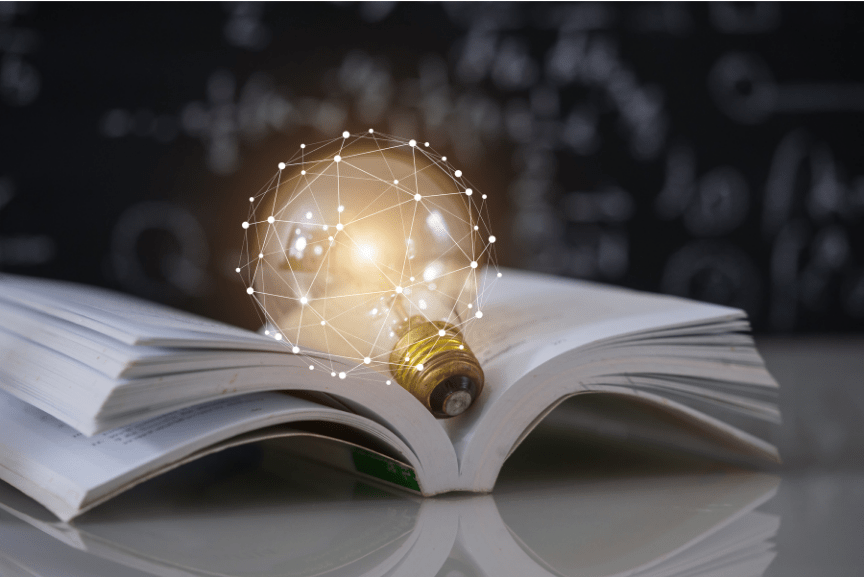The world of education is experiencing a significant shift, sparked by the emergence of Large Language Models (LLMs) and the intelligent AI agents they empower. These aren't just tools to change how students learn; they're catalysts for reimagining the educator's role and unlocking the potential for truly personalized education. GPT-trainer is an AI agency deeply invested in this transformation. We specialize in crafting LLM- powered AI agents for educational institutions, providing educators with innovative AI solutions designed to meet the evolving demands of modern learning. We see these technologies not as replacements for teachers, but as powerful partners in navigating the challenges and embracing the opportunities of today’s educational landscape.
The Evolving Needs of Education
Traditional educational models, while foundational, are increasingly challenged to adapt to the diverse needs of today's learners and the complexities of our sociopolitical environment. Let’s explore some key areas where educational institutions are feeling the pressure:
- The Quest for Personalized Learning Support: Every student's learning journey is unique. They absorb information at their own pace and in their own style. Traditional, "one-size-fits-all" teaching methods often struggle to accommodate this rich diversity. This is particularly evident in specialized areas like technical and vocational training, where deep understanding hinges on tailored instruction and support. Imagine the difference personalized guidance could make in mastering intricate technical concepts.
- Bridging the Availability Gap: Today’s students live in a digital world and often
expect support that extends beyond the traditional classroom and fixed school
hours. However, teachers, with their packed schedules and classroom
management responsibilities, often face limitations in their availability. This gap
can lead to student frustration, hindering their progress and impacting their
overall academic journey. Students need support that fits into their learning
schedule. - Optimizing Educator Resources: Educators dedicate considerable time to tasks that, while necessary, can detract from more impactful activities. Repetitive student queries, grading assignments, and administrative duties consume valuable hours. This can limit their capacity for advanced instruction, curriculum innovation, and the personalized mentorship that can truly elevate a student’s learning experience. Imagine freeing up teachers to focus on what they do best: inspiring and guiding students.
- Navigating Language Diversity: Classrooms are becoming increasingly global, welcoming students from diverse linguistic backgrounds. Language barriers can significantly impede learning. They can hinder comprehension, restrict access to resources, and lead to feelings of isolation – creating hurdles to inclusivity and effective learning.
- Ensuring Regulatory Compliance in a Digital Age: Integrating AI into education brings crucial considerations around data privacy and copyright. Educational institutions must navigate regulations like GDPR, ensuring the responsible and ethical handling of student data in this evolving technological landscape.
These challenges underscore the urgent need for innovative solutions that can elevate the learning experience for both students and educators. This is precisely where the transformative power of LLM-powered AI agents becomes evident.
The Transformative Power of LLM-Powered AI Agents
LLM-powered AI agents offer a suite of powerful capabilities that directly address the pressing challenges in education. They open up exciting new avenues for personalized learning, enhanced support systems, and boosted efficiency within educational institutions:
-
Personalized Learning Journeys: AI agents can analyze a wealth of student data – from learning history and assessment performance to individual learning style preferences. This analysis enables them to provide customized explanations, curated resources, and targeted feedback. Crucially, they can adapt their responses to each student’s proficiency level, ensuring the challenge and support are perfectly aligned. For instance, an AI agent could guide a student struggling with algebra through step-by-step solutions and tailored practice problems, while offering a more advanced learner complex challenges and opportunities for independent exploration.
-
Always-On, Always-Available Support: Unlike human educators with finite availability, AI agents offer 24/7, on-demand support. Students can access assistance whenever and wherever they need it – whether it's late-night homework, exam preparation, or seeking clarity on a tough concept. This constant availability ensures no student is left behind due to timing constraints.
-
Intelligent Resource Recommendation: Think of AI agents as personalized learning companions. They can recommend relevant study materials, practice exercises, and supplementary resources based on a student’s progress, areas of difficulty, and individual learning preferences. This helps students effectively navigate the vast sea of information and focus on what’s most beneficial for their unique needs.
-
Breaking Down Language Barriers for Inclusive Learning: AI agents can serve as real-time translators, bridging language gaps and helping students grasp complex concepts in their native languages. They can also offer personalized language learning support through grammar and vocabulary exercises. This creates a more inclusive and equitable learning environment for students from diverse linguistic backgrounds.
-
Data Security and Compliance Built-In: AI agents can be designed with data privacy as a core principle, ensuring adherence to regulations like GDPR. This includes robust security measures, data encryption, and strict data handling policies.
-
Automated Grading and Streamlined Assessment: AI agents can significantly ease the administrative burden on educators by assisting with grading, providing feedback on student work, and even generating assessments. This frees up valuable teacher time for deeper engagement with students and curriculum development.
-
Interactive Learning and Gamification for Engagement: AI agents can create dynamic learning experiences through simulations, quizzes, and game-like elements. This can boost student engagement, motivation, and knowledge retention by making learning more interactive and enjoyable [9].
-
Summarizing Complex Information for Efficient Learning: AI agents can condense lengthy lectures, textbooks, and other educational materials into concise summaries. This makes it easier for students to grasp key concepts and focus on the most crucial information.
-
Accessibility Features for Diverse Learners: AI agents can enhance accessibility for students with disabilities through features like text-to-speech and speech recognition, enabling them to engage with materials and classroom activities more effectively.
Furthermore, research indicates that LLMs can achieve student-level performance on standardized tests and serve as valuable writing assistants, underscoring their significant potential to improve student outcomes.

GPT-trainer's Specialty: AI Agency for Education
At GPT-trainer, our expertise lies in crafting custom LLM-powered AI agents that seamlessly integrate into existing educational systems. We believe in a collaborative approach, working closely with institutions to ensure our AI solutions are perfectly aligned with their unique needs and educational goals. We pride ourselves as the premier AI agency for education. Our methodology combines a cutting-edge multi-agent framework with a user-friendly no-code interface and versatile API. This allows us to create AI agents that are not only remarkably accurate (99.9%) and brand-consistent, but also fully compliant with internal and external policies.
Here's a glimpse into our collaborative process:
- Teacher-AI Partnership in Training: We work hand-in-hand with educators to train AI models using your institution's specific curriculum and teaching materials. This ensures that the AI agent's responses are contextually relevant, aligned with learning objectives, and reflective of your institution's unique teaching style. For example, we can collaborate with teachers to develop AI agents that provide clear, engaging explanations tailored to diverse learning styles, incorporating relevant examples and analogies.
- Subject-Specific Customization: We understand that different subjects come with unique challenges. We tailor AI agents to address the specific needs of various disciplines, from STEM fields to humanities and vocational training. This includes customizing the AI agent's knowledge base, language model, and interaction style to perfectly suit each subject's requirements.
- User-Centric Interface Design: We prioritize creating user-friendly interfaces that foster engagement. We design intuitive platforms that allow teachers and students to interact with the AI agent naturally, in a conversational manner. This includes incorporating interactive elements and providing clear, concise feedback.
- Continuous Optimization for Evolving Needs: We are committed to continuous improvement. We actively monitor and refine AI performance based on student feedback and academic outcomes. This ensures the AI agent remains effective and relevant over time. This involves analyzing user interactions, identifying areas for enhancement, and retraining the AI model to improve its accuracy and responsiveness.
- Ensuring Accuracy and Minimizing Errors: We employ AI-assisted debugging tools and a human-in-the-loop approach to refine context and ensure accuracy. This rigorous process guarantees that the AI agent's responses are reliable, accurate, and free from "hallucinations," providing students with trustworthy information and support.
- Prioritizing Data Security and Privacy: Protecting student data and ensuring GDPR compliance is paramount. We implement robust security measures, including data encryption and access controls, to safeguard sensitive information. Our data retention policies are designed to minimize data collection and ensure ethical and responsible data use.
Real-World Impact: The TEC Vocational Training Center Case Study
To truly understand the transformative potential of LLM-powered AI agents, let's look at TEC, a vocational training center that partnered with GPT-trainer to integrate AI learning assistants.
TEC faced challenges common to vocational education settings:
- Providing personalized learning support in technically demanding subjects.
- Addressing limited teacher availability outside of scheduled class times.
- Optimizing teacher time by reducing repetitive tasks.
- Overcoming language barriers for a growing international student population.
- Maintaining strict GDPR compliance.
GPT-trainer collaborated with TEC to develop AI learning assistants that were seamlessly integrated into their existing Learning Management System (LMS). These AI assistants provided students with personalized support, answered their questions instantly, recommended relevant learning resources, and offered 24/7 availability.
The results were compelling:
- Increased Student Engagement: Students reported feeling more motivated and satisfied, citing the personalized support and immediate feedback as key drivers.
- Improved Academic Performance: Many students demonstrated a deeper understanding of complex concepts, leading to improved grades and higher course completion rates. Research indicates that students who regularly use LLMs in education show a 10% improvement in academic performance scores compared to those who don't.
- Efficient Use of Teacher Time: By handling common student inquiries, AI assistants freed up educators to concentrate on advanced topics, provide individualized student support where it was most needed, and offer personalized mentorship.
- Scalability and Accessibility: TEC successfully supported a larger student body across numerous programs without needing to increase staff, highlighting the scalability and cost-effectiveness of AI-powered educational solutions.

The Expanding Horizon of LLMs in Education
The future of education is undeniably intertwined with the ongoing evolution of LLMs. Looking ahead, here are key trends and exciting possibilities that will shape the learning experience:
- Hyper-Personalization: AI agents will become even more sophisticated in understanding individual learning nuances – styles, preferences, and specific needs. This will enable truly customized educational content and support, crafting personalized learning journeys that maximize each student's potential and foster deeper understanding. Imagine AI agents that dynamically adjust lesson pace and complexity based on a student's real-time performance, providing individualized challenges and support to maintain optimal engagement and motivation.
- Multimodal Learning Experiences: LLMs will seamlessly integrate text, images, and audio, creating richer, more immersive, and multi-sensory learning environments. This will move beyond traditional text-based learning, incorporating interactive simulations, virtual reality experiences, and personalized multimedia content to cater to diverse learning styles and preferences.
- AI-Enhanced Assessment and Feedback: AI agents will play an increasingly vital role in evaluating student work, providing more comprehensive and personalized feedback than ever before. This goes beyond simple grading, offering valuable insights into a student’s strengths and areas for growth, and recommending tailored resources for improvement.
- Lifelong Learning Companions: LLMs will extend learning support beyond formal education, providing individuals with the resources needed to adapt to evolving career demands and acquire new skills throughout their lives. This will foster a more dynamic and adaptable workforce, ready to navigate the complexities of a rapidly changing world. Envision AI agents recommending relevant courses, articles, and training materials based on individual career goals and learning progress, supporting continuous professional development and lifelong learning journeys.
- Predictive Analytics for Proactive Support: LLMs can analyze student data to predict academic success, identify at-risk students early on, and optimize learning strategies across the board. This empowers educators to provide timely interventions, personalize support, and improve overall student outcomes.
- Reducing Cognitive Load for Deeper Learning: AI agents can simplify complex tasks, summarize dense information, and organize study plans, allowing students to allocate their mental resources more effectively and focus on deeper, more meaningful learning.
GPT-trainer remains committed to being at the forefront of these exciting advancements, developing AI solutions that empower educational institutions to create truly innovative and effective learning environments.
Conclusion
LLM-powered AI agents are fundamentally changing education by delivering personalized support, increasing accessibility, and optimizing resource utilization. GPT-trainer's specialized expertise in crafting customized AI solutions for educational institutions enables us to partner with schools and training centers to create transformative learning experiences. As LLMs continue their rapid evolution, we are dedicated to developing AI agents that empower both educators and students to thrive in the ever-evolving world of education.
We invite you to explore how GPT-trainer's services can help your educational institution embrace the future of learning. Visit our website or contact us at hello@gpt-trainer.com to discover the possibilities. Together, let's shape the future of education through the power of AI.

